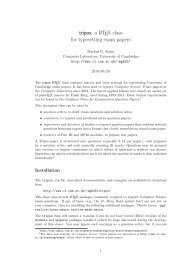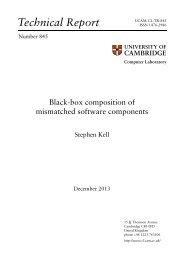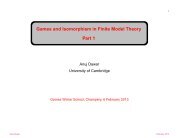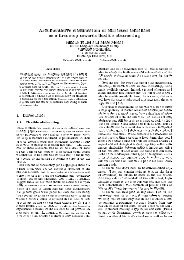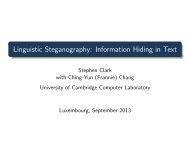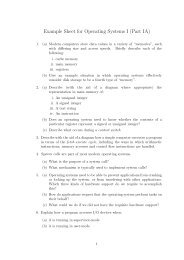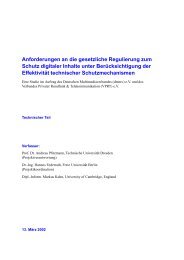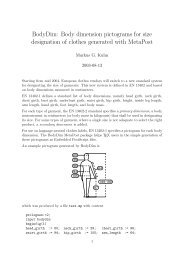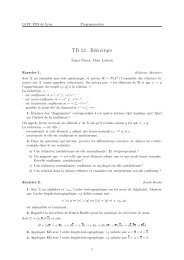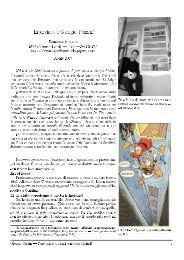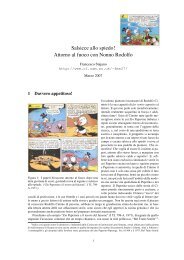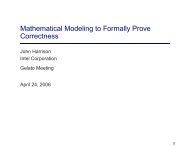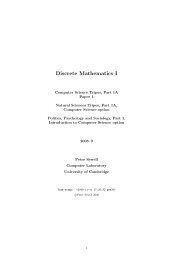Radical innovation: crossing knowledge boundaries with ...
Radical innovation: crossing knowledge boundaries with ...
Radical innovation: crossing knowledge boundaries with ...
You also want an ePaper? Increase the reach of your titles
YUMPU automatically turns print PDFs into web optimized ePapers that Google loves.
6. The Making of the interdisciplinary professional<br />
The perceived value of interdisciplinary research as a basis for <strong>innovation</strong> has resulted<br />
in public funding for a wide range of interdisciplinary training initiatives, such as<br />
personal development courses, fellowship schemes and on a larger scale,<br />
interdisciplinary masters degree programmes and doctoral training centres. In the<br />
generation of successful interdisciplinary innovators who contributed to our project,<br />
none had had opportunities of this kind in their own training. However, it is useful to<br />
consider the kinds of skill that appear to be particularly valuable in our expert<br />
witnesses’ reflection on their own careers, and the way in which they had developed<br />
those skills.<br />
6.1. Personal qualifications<br />
In conventional disciplines, an established hierarchy makes it very easy for an expert<br />
to enter a new situation <strong>with</strong> a ‘badge’ of expertise describing a position <strong>with</strong>in that<br />
hierarchy. Expert interdisciplinary innovators do not have this advantage. As a result,<br />
they are likely to present their qualifications in the form of an account of their<br />
personal history.<br />
As evidence of boundary-spanning, this account is often likely to emphasise<br />
differences from those present, rather than commonalities. One expert witness<br />
introduced himself to our social science research team as a computer scientist, but in a<br />
technical context is more likely to introduce himself as a social scientist. Of course,<br />
this claim to an alternative expert perspective can also work as evidence of external<br />
authority, or a licence to criticize (both, in the case of that individual).<br />
Qualification in the professions is especially likely to be mentioned and to carry<br />
weight, both on entry to an academic context (implying practical skills and <strong>knowledge</strong><br />
of the ‘real world’ outside the university, in ‘industry’), but also because professional<br />
traditions all have established practices by which multi-disciplinary teams are able to<br />
collaborate on a problem. In our workshops, expert witnesses were most likely to<br />
describe professional design qualifications, though we also had representatives of<br />
engineering, law and business.<br />
6.2. Imprinted disciplinary styles<br />
Individuals often seem to become ‘imprinted’ <strong>with</strong> particular disciplinary styles as a<br />
result of early life experiences, especially first professional experiences and (for<br />
academics) early experience of higher education. This is not so much a matter of<br />
specific <strong>knowledge</strong> or disciplinary vocabulary (although vocabulary is also a constant<br />
obstacle). Rather, it is a difference in ways of thinking, manner of approaching a<br />
problem, or the way in which goals are conceived. Expert witnesses referred to this<br />
Innovation and Interdisciplinarity 64



